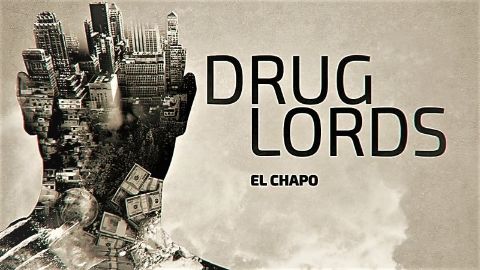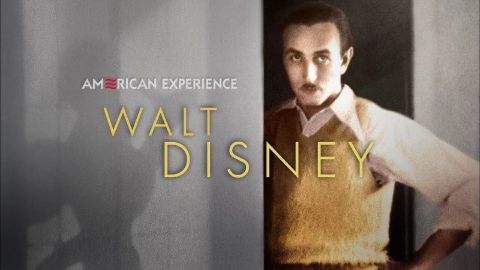You might also like
Dawkins discusses his book, the Selfish Gene, which divided the scientific community and made him the most influential evolutionary biologist of his time. Professor Richard Dawkins is one of the most well-known and controversial scientists in Britain. A passionate atheist he believes science rather than religion offers us the best way to appreciate the wonders of the Universe we live in. In the last 10 years he has become notorious for his outspoken views on religion, but at the heart of his success is his explosive first book -- The Selfish Gene -- which put forward a radical rewriting of evolutionary theory and divided the scientific community. Much of the controversy comes from its provocative title.
S2E3 • Beautiful Minds • 2012 • People
Bin Laden's on the run and plotting an audacious plan to strike at the US. Bin Laden returns to Saudi Arabia from Afghanistan, where he is hailed as a war hero after the Soviets left because he believes he made a significant contribution to the military victory. 18 months later, Saddam Hussein invades Kuwait, prompting worried Saudi authorities to turn to the US for protection. Horrified by what he perceives as an invasion of the holy places by the American army, bin Laden publicly opposes the Saudi royal family declaring Jihad against the US and is eventually forced to flee to Sudan. There he reinvents himself as a major agricultural producer of sunflowers and watermelons, while expanding al-Qaeda's work and setting up training camps that attract recruits from across the region. Under pressure from Saudi Arabia and the United States, bin Laden finally has to give up his refuge in Sudan. Stateless and without much prospect of alternative quarters, he returns to Afghanistan in 1996. Just a few months later, he issued a 30-page fatwa declaring holy war against the Americans who occupied the Arabian Peninsula. He surrounded himself with increasingly radical extremists, and in the summer of 1996 finally suggested piloting planes to American targets. The plan to attack the Twin Towers is born. This compelling history documentary looks at the factors that transformed Bin Laden from a renowned freedom fighter to a devoted enemy of America and the West. What drove him to plot his most audacious attack?
S1E2 • Bin Laden: The Road to 9.11 • 2021 • People
Marco Polo: World's Greatest Overland Explorer? Or World's Biggest Liar? Perhaps no land journey in human history is more famous than Marco Polo's legendary 24 year trek across Asia. But was it all just a big lie? As described in his 1299 book, the peripatetic Venetian merchant encountered such wonders as the "singing sand dunes" of Dunhuang, China, "mountains of salt" in present-day Afghanistan, and the glories of the Mongol court of Kublai Khan. Generations of Europeans were spellbound by Polo's account, yet in recent years some scholars have questioned its authenticity. National Geographic Photographer Mike Yamashita sets out to visually document one of the greatest overland journeys ever made: the 24-year odyssey of Marco Polo. 700 years ago a young Venetian set out on what was to become one of the most influential journeys ever made. His adventures took him well beyond the boundaries of the known world of Persia to a land that was almost completely unexplored - the mysterious Middle Kingdom. But ever since he returned there were those who doubted Marco Polo. Did he really see what he described in his legendary book, 'Description of the World' or did he merely describe what others told him. In this film, Mike Yamashita follows Marco's book from the lofty heights of the Pamir Mountains to the fabled city of Xanadu in Mongolia. In so doing he attempts to unravel some of the age old mystery: Did Marco Polo really go to China? In the course of this incredible journey Mike stumbles onto a nomadic Kazak wedding in Aksai and investigates the controversy of the Great Wall - why did Polo never mention this in his famous travelogue "The Description of the World"? And why did he never mention tea or chopsticks? Yamashita talks to noted Chinese historian Professor Liu Yingsheng about these and many other Polo conundrums. In Yunnan province, he visits the bound feet women, and travels to inner Mongolia to film the famous herds of the Mongolian horsemen. As Yamashita reaches Xanadu he ponders on how Polo became a trusted confidant to the Khan and spent 17 years in his service. What sights he must have seen. But did he? The mystery slowly but surely reveals itself.
2022 • People
After idolizing drug lords as a child, Joaquin "El Chapo" Guzman becomes one of history's most notorious kingpins, known for his audacious escapes
S2E1 • Drug Lords • 2018 • People
Uniquely adept at art as well as commerce, Walt Disney was a master filmmaker who harnessed the power of technology to tell stories of outsiders struggling for acceptance and belonging, while questioning the conventions of class and authority. As Disney rose to prominence and gained financial security, his work became increasingly celebratory of the American way of life that made his unlikely success possible. A polarizing figure - though true believers vastly outnumber his critics - Disney's achievements are indisputable. In this two-part, four-hour film, AMERICAN EXPERIENCE examines Disney's complex life and continuing legacy, featuring rare archival footage from the Disney vaults, interviews with biographers and historians, as well as the animators and designers who helped turn his dreams into reality. Both an inspiring story and a cautionary tale about the price of ambition, Walt Disney offers an unprecedented look at the man who created a world and built an empire.
S1E2 • American Experience • 2015 • People
The life and career of the renowned stage magician turned scientific skeptic of the paranormal, James Randi.
2014 • People





